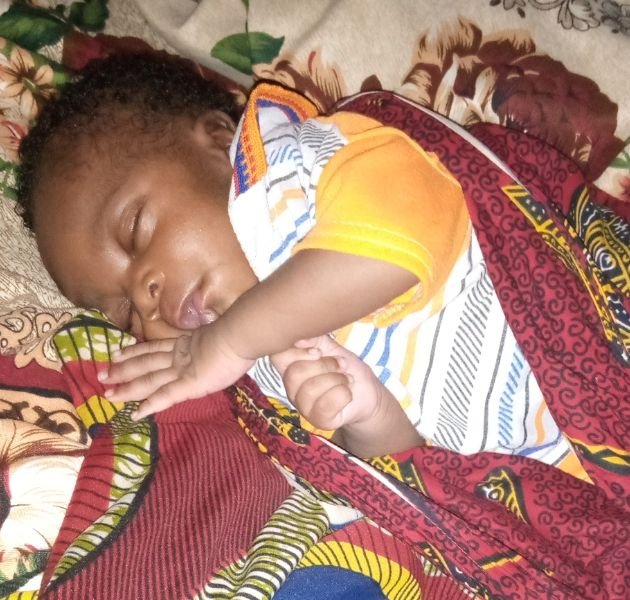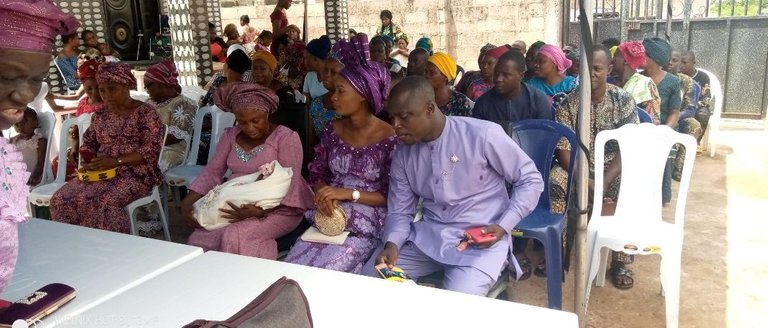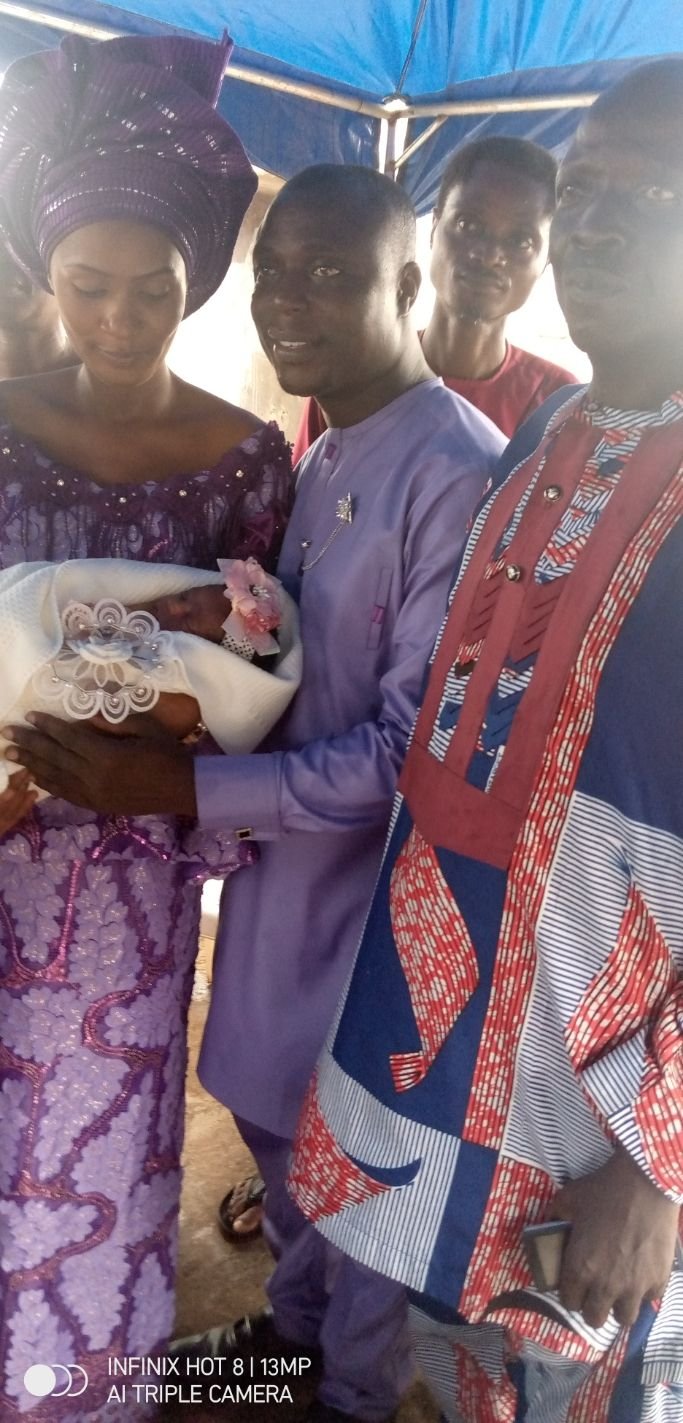CROSSCULTURE CONTEST: The Reflection Of The Arrival Of A New Born Child In My Culture

There are different cultures in the whole world and the way they celebrate their child's birth. Culture is a way of life of people living in a confined area. Giving birth to a child is a blessing and indeed a day of joy to the parents. From the first day of pregnancy to the day when the child will be born, the woman will not be allowed to do much work. She will be doing less work instead of hard work, which will later stress the woman when giving birth. We in Nigeria here believed so much in our women, most, especially when they are pregnant.
Some people do get a perfect name for their child even before the child is born. This is as a result of the happiness of the parents. They sometimes call people to celebrate their unborn children which show the sign of happiness, this is common to the royal family. When the child is now a boy, it can truly give them joy for they will have a strong belief in the male children for they will be the ones taking over their throne while they grow older.
Back to business
In my culture, when a child is born, people come around to celebrate with you. They will first come to great you, and after which their next coming will be to bring gifts to the child. They will bring all kinds of gifts like clothes, detergents and bathing soap for the child, and other kinds of gifts.
Names and Naming Ceremony

Every name given to any ISOKO child has a meaning attached, which may be as a result of the circumstances of the arrival of the baby. This means any names the child bears is according to how he or she was given birth to. This is our belief and for instance, if your child is given a name called good luck means he will be great in life and his guest in life OR OGHOKUMUEMU (Meaning doing good is a sin). This shows that before the child's birth, the parents have been helping people but when they needed help when the woman is pregnant, they were turned down.
The child's parent gives the name(s) to the child, and also the grandparents have the opportunity to give names to the child. The child on the other hand will have many names.
The Isoko culture has changed just because of the modernization or else, the child after birth will not be to be seen by anyone apart from the family members until it is time for naming which is 8 weeks just because of cultural belief that wicked ones may inflict their wicked hands on the child.
So, when it is eight (8) days, the child will be circumcised. Females also do circumcise but are not common again just because of civilization. So, either the mother to the woman or the man will come to help the woman, most, especially in the aspect of bathing the child. They will stay for some time before going back.
The Umbilical cord after it has been removed will be buried in a plantain sucker or any plants that can bear fruits. This will automatically belongs to the child when he grows you.

When the baby is in three months, he or she will be taken to the church for dedication.
Things have changed, and the child will always be indoor, but people will visit the family until it is the naming day.
Thanks to @starstrings01 @selfhelp4trolls and @blogging-team for making this contest a success.
I'm using this opportunity to invite @princessbusayo @amberkashif @merit.ahama to participate in this contest.
You can participate in the contest HERE
All images are taken by me
Perhaps let me enter so i can give details of how our last born was named then😅
Waiting to see your post.
Modernization has changed a lot of things been practiced then but what you said here are true. Thanks for sharing about your culture
I don't why but is it compulsory to name a child according to circumstances? I don't think I like that idea at all, parents are supposed to have prepared a name for their child before they are born and not just come up with a name from around.
The isoko culture in the arrival of a child is nice and I learnt some things from it.
All the best with the contest, found my way to your post through @dreemport
To me, I gave names to my children as I wish but following the culture, my wife's mum gave them names according to what happened that day. The names she gave to them is a native names.
Am glad to read about the arrival of a new born baby in you culture. I also from Isoko and I actually don't know much about their culture. Perhaps because I didn't grow up there and I have not even bothered to ask anyone about this.
Reading this made me realize there are a lot I need to know about my culture. No doubt, mordernization has changed a lot of things but some persons still hold on to their old believe. Thanks for sharing this. I was directed to this post by @dreemport
Wow..so, we are from same place.? It's great. We have an amazing culture
Yea, such an amazing culture. Please commented on your post about lalley leaf and asked you a question. You are yet to respond to that. I will be glad if you reply me @cool08
I will go check it out now. Nope you have been going home Sha.?
Few things about the arrival of the child looked strange yet unique to me and it's regarding the umbilical cord and burying it within the plant. It's new for me.
But nice to know about the isoko culture, wishing you good luck with the contest.
Visited your entry through @dreemport
This is our great culture and up till now, we still do the burying of the umbilical cord in a plant that has capacity of bearing fruits.